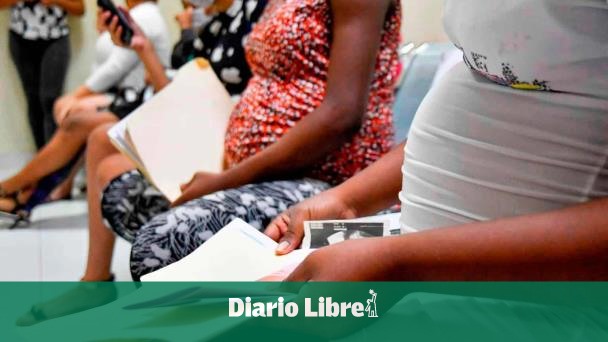The centers of health They have become an oasis for haitians in the Dominican Republic, where they can receive medical treatment without fear of being deported by the immigration authorities, who have increased raids following the Government’s announcement that it will expel 10,000 undocumented immigrants weekly.
Yolanda, 22, wears a red Christmas sweater, with reindeer, snowflakes and snowmen. Eight months pregnant, she is in a hospital Dominican near the border with Haiti for a medical checkup. She is Haitian.
“You sound good,” the doctor says, encouraging her, as she performs the ultrasound. The young woman smiles for the first time since she entered the office.
It is her second pregnancy, the first was when she was 18 years old. Then he went to the same hospital. “I was born here, but I am Haitian,” she tells EFE.
In the waiting room, most of the patients They are also, apparently, from the neighboring country.
The Dominican doctor who treated her, not identified as a precaution, explains to EFE that “the foreign problem is a problem at the national level” because public hospitals throughout the country, which accept patients without insurance, “they are crowded with foreigners“.
“But in the border It’s worse, being so close, 90% of the patients what we see here are foreign (…) They are patients who already come without checkups, with very poor nutrition, without vitamin supplements, so the pathologies they present are serious,” he laments.
Sometimes they arrive seriously ill, “but on time,” he celebrates, which has allowed maternal deaths to drastically decrease, with blood transfusions or transfers to the ICU in hospitals with more resources.
“Really about the migration It is a political problem and doctors we are called to attend to the patients regardless of race, religion, immigration status, that’s what we are for,” he recalls.
Daily deportations
At the Dajabón border point everything looks different. It’s Friday, the day of marketand with the opening of the access gates to the Dominican Republic at 8 in the morning hundreds of haitians They rush with baskets, wheelbarrows and cauldrons to purchase products that are scarce in their country.
He market binational is surrounded by Dominican security forces, who only allow those with a work permit to pass the controls. The rest go mainly to the grocery area, where bananas, eggs, vegetables, rice are sold, which they load and take to the other side of the street. border before the authorities close the floodgates, punctually, at 5 p.m. (22:00 GMT).
Everyone is in a hurry, including the immigration authorities, who with four minutes to 5 arrive with a van full of haitiansthey open the barred door of the vehicle and the deported“60 men,” says an official, mostly young.
At the end of November, the president Dominican, Luis Abinader, stated that the “unprecedented” situation of insecurity in Haiti made them continue with their mass deportation plan that began in October.
According to data from the General Directorate of MigrationFrom October 1 to December 9, the Dominican Republic has deported 76,000 people, the vast majority of them Haitians. Organizations defending rights humans criticize that these expulsions They come to a country mired in poverty and violence by armed gangs.
One of the places that services usually choose migratory to capture haitians It is the entrance to the centers health.
Elena, 26, tells EFE that, when that happens, she waits for them to leave. Sometimes, if they watch the place in the morning, you have to wait until the afternoon to go for a consultation. “When he left, I already came to the hospital“says this Haitian woman married to a Dominican in limping Spanish.
It is in a hospital from a border town for her first pregnancy checkup. She is expecting her fifth child.
“Haiti spends a lot calamityand that is why all haitians they come pa’ca (here)”, he remembers.
Hospitals, a refuge from the deportations
Before the complaints that some Haitians give birth at home for fear of deportationsmedical personnel from several hospitals consulted by EFE insist that they never reject the admission of a patient.
“There is no type of xenophobia towards any type of race, color, language. Everyone is treated equally, here you come and we don’t have a specific room, but rather a common room,” the director of a hospital border, who maintains anonymity.
He explains that the books of record of the center show the “high incidence of nationals haitians“and emphasizes that you never reject a patient due to lack of space. He regrets that many times pregnant Haitians are “surprise boxes”, arriving at delivery without prior check-ups.
A nurse from another center, with 29 years of experience, insists to EFE that they have “service for everyone”, and free.
“In addition to having a job, you know that the humanitarian part is up to you. Haiti is a very poor town, I am not going to deny an appointment (…) to a mother, if (…) the child has a fever,” he says.
“I don’t let a brunette, if she’s pregnantI leave without one vitamin. And I also have some bosses who tell me: ‘Well, sometimes they say not to give it to someone, not to supply it because there is little, but you know that you have to give it to someone. My daughters, the grown-ups say one thing and we do another thing,'” he says.















